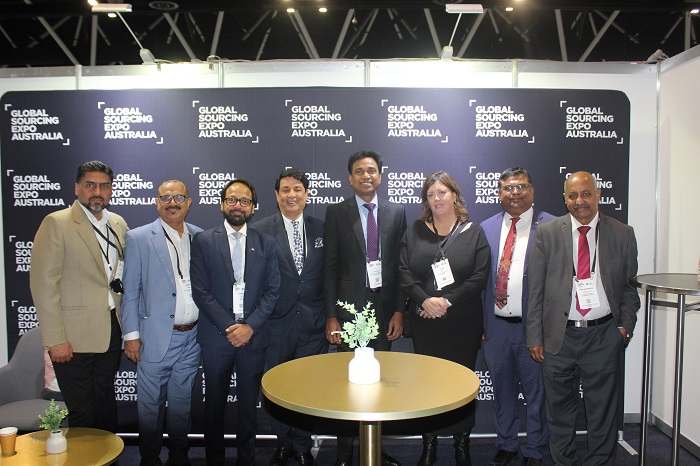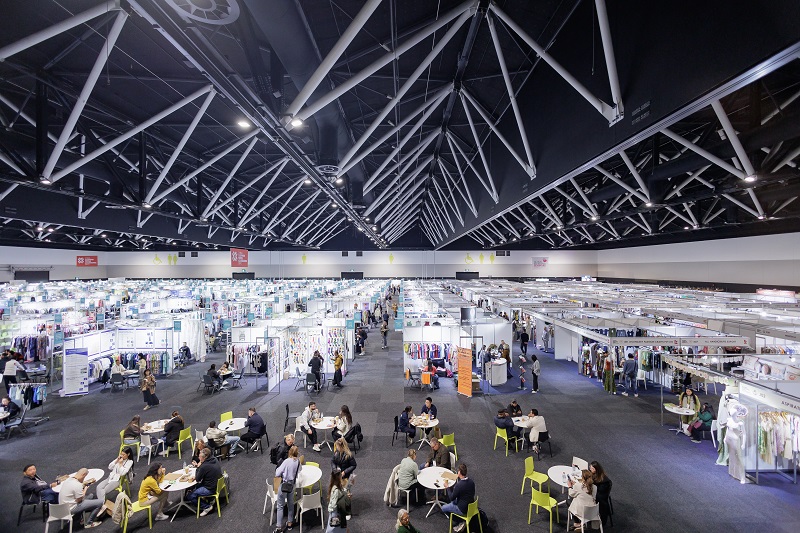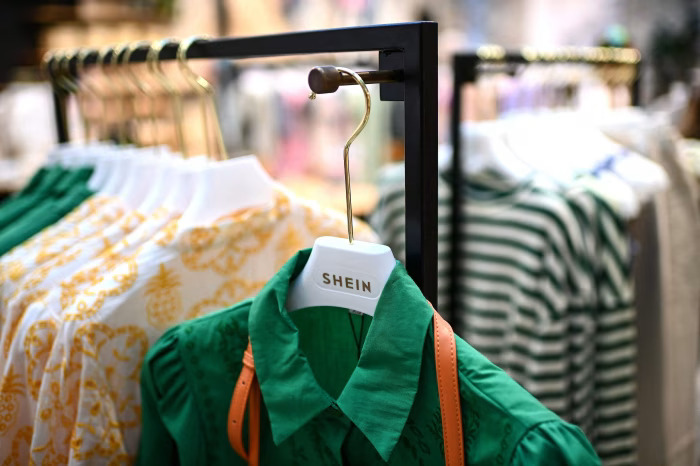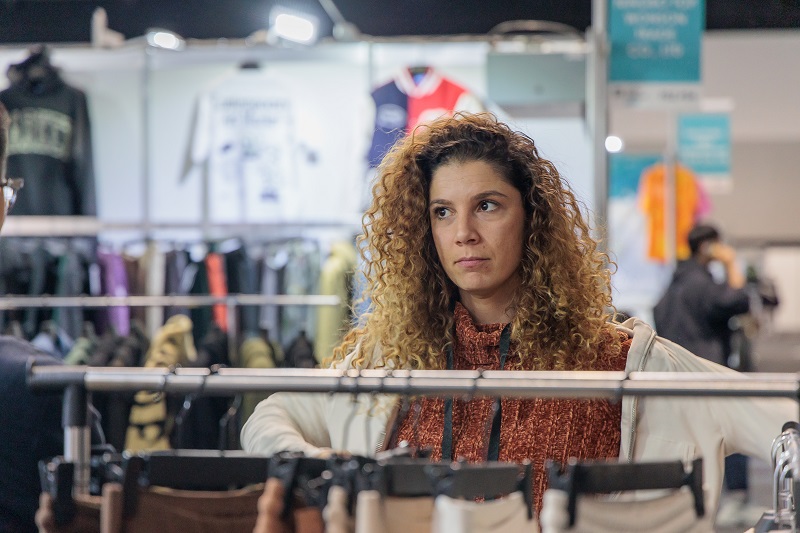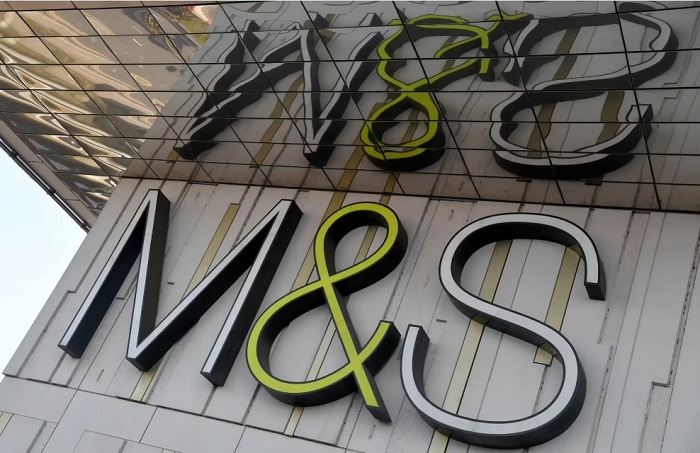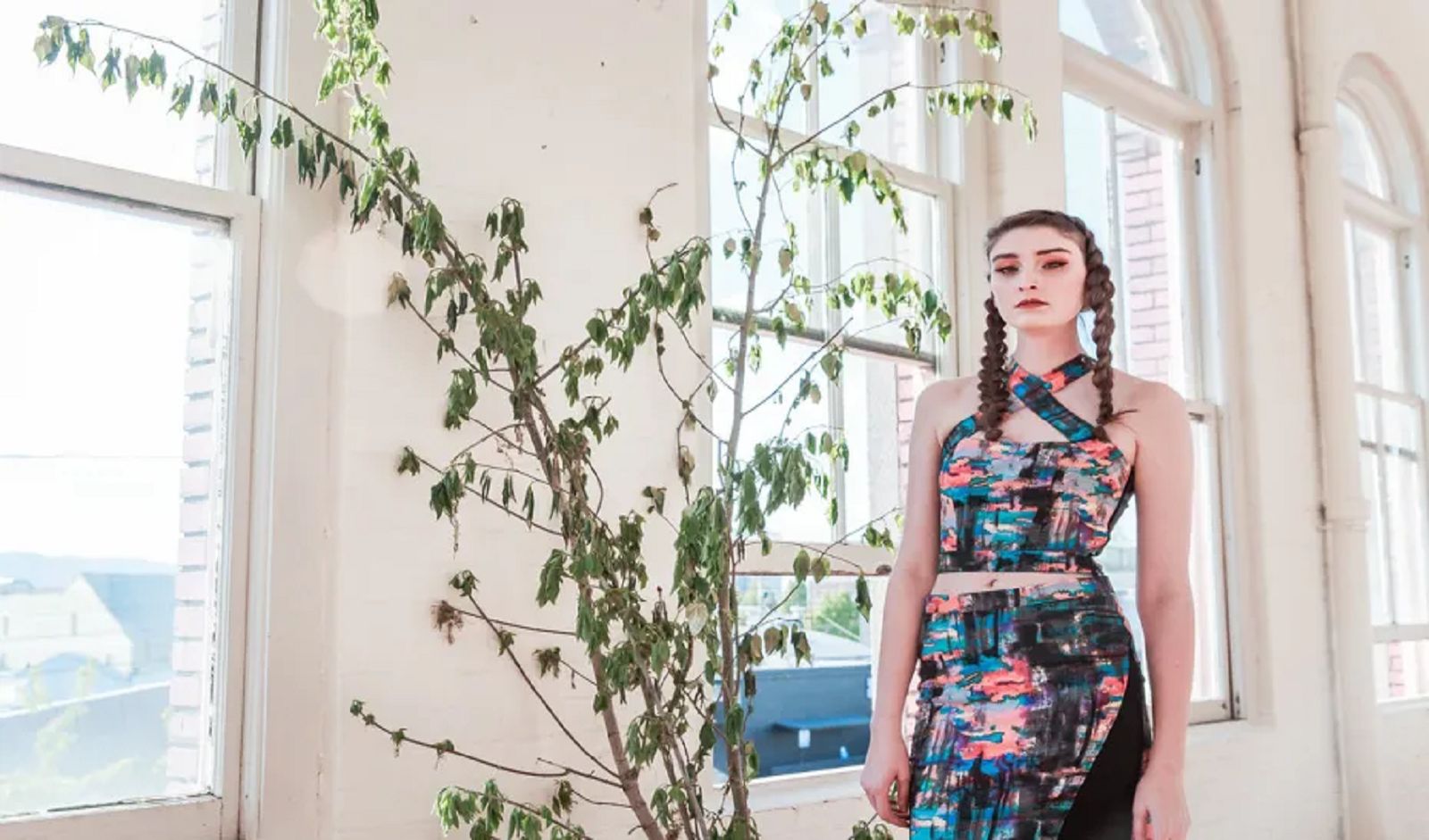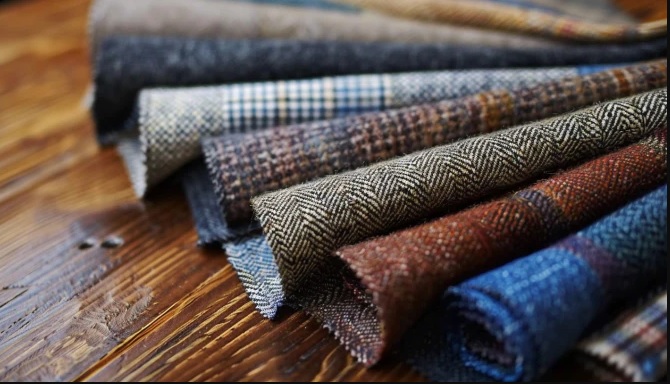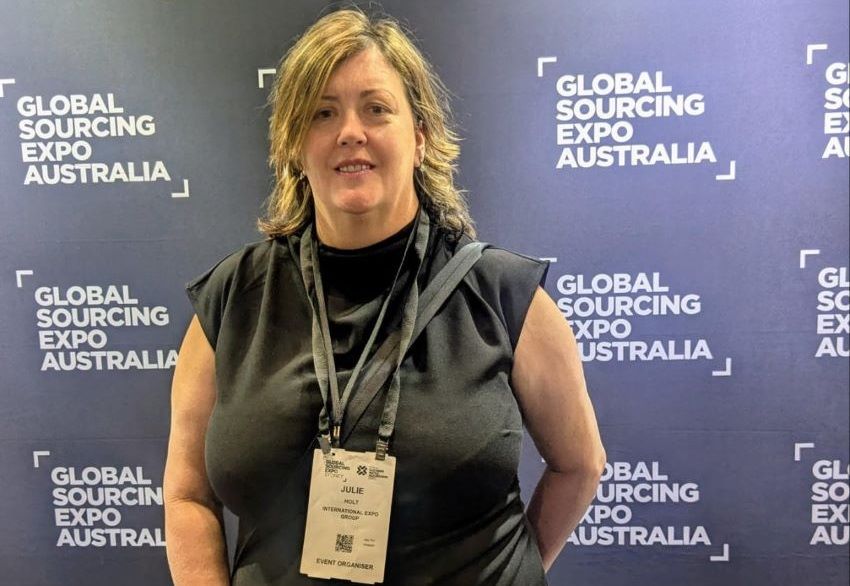FW
The Garment Textile Machinery Accessories and Technology (GTMAT) sourcing expo is on in Bangladesh from November 9 to 11, 2017. The event is aimed at providing a vibrant business platform for domestic and global players in the readymade garment and textile sectors to explore new business opportunities in Bangladesh.
More than 75 companies related to garment and textile machinery/solution providers from five countries including Bangladesh, India, Japan, China and Hong Kong are taking part in the expo. Bangladesh-based event management company Kites International Trade and Exhibitions is organising the expo. Total Lubricants, a globally renowned oil company, is the sponsor. And the Bangladesh Garments Accessories and Packaging Manufacturers and Exporters Association and the Bangladesh Knitwear Manufacturers and Exporters Association are the partners of this exhibition.
GTMAT showcases the latest developments in garment and textile machinery, accessories, new technology and services to make high-quality and value-added products. Through GTMAT, stakeholders including garment and fabric manufacturers can gain deep insights into new and innovative developments and technological interventions to help expand business and market reach.
Implementing the new and sophisticated technology would not only enable one to become more price-competitive and add value to products but also gain an edge in all other relevant areas of garment and textile manufacturing.
The South-South Cooperation project ‘Cotton with Decent Work’ is executed by the ILO in partnership with the Brazilian Cooperation Agency (ABC) and the Brazilian Cotton Institute (IBA).
The project aims to improve the working conditions of workers and cotton producers in the five program countries through systematization, sharing and adaptation of relevant Brazilian experiences. The ILO project on decent work in the cotton industry, and will be implemented from early 2018. In each country viz. Mali, Mozambique, Paraguay, Peru and Tanzania project teams worked with governments and workers’ and employers’ representatives to define the activities of the project. The project is executed by the ILO in partnership with the Brazilian Cooperation Agency (ABC) and the Brazilian Cotton Institute (IBA).
The initiative aims to improve the working conditions of cotton producers in the five countries through systematization, sharing and adaptation of relevant Brazilian experiences. Areas of focus include: poverty reduction; productive inclusion; prevention and eradication of child labor and forced labor; promotion of youth employment; combating discrimination; and promoting gender and social dialogue.
Bangladesh Denim Expo held from November 8 to 9, highlighted the need for transparency within the entire denim supply chain to attract global buyers. More than 5,123 visitors and 1,015 companies from 51 countries took part in the expo, whose theme was ‘Transparency’ in this edition.
A total of 65 exhibitors from 12 countries including Bangladesh, Germany, Italy, Japan, China, Singapore, Turkey, Vietnam, India, Pakistan, Spain and Hong Kong participated in the exhibition to showcase their denim pants, fabrics and modern machinery.
The expo was aimed at establishing a platform for denim stakeholders and making Bangladesh a one stop sourcing platform for the denim industry. The goal was to improve the image of the country’s denim and apparel industry, to have made in Bangladesh stand for excellence, increase cooperation and knowledge sharing and a collaborative approach that is able to highlight best practices and potentialities to make denim more and more transparent. Additionally local manufacturers benefit from the latest trends in the denim business across the world through such expos. The country’s high end denim products are attracting buyers particularly from the European Union and the United States. Currently, Bangladesh has 32 denim mills with a total annual production capacity of about 443 million meters.
European textile machinery manufacturers held road shows in Colombia in October. Their aim was to be their customers’ partners and not just machine suppliers. The road shows enabled them to understand customers’ needs and offer them the best possible technologies and machines with which they will be able to design new products, open new markets in a productive, reliable, cost effective and sustainable way. The road shows allowed machinery makers to meet long time customers and make new contacts.
The event format included a 15 minute presentation by each machinery manufacturer. Simultaneously, a mini fair was held where they showed animated videos of their machinery running at clients’ sites and showcased textile samples produced on their equipment. They were available to develop business cases and personalized technological solutions.
The manufacturers present at the show were: Belgium’s Bonas which produces state-of- the-art electronic jacquards for all kinds of fabric applications like terry toweling, furnishing fabrics, curtain fabrics, apparel; Spain’s Canmartex makers of electronic jacquard circular and single and double jersey; and Laroche from France, a pioneer in fiber processing machines.
DyStar has introduced Cadira Denim. This reduces water, waste and energy consumption and lowers substantial waste quantities from the effluent treatment plants. It helps brands and retailers and their production partners save valuable resources, reduce the carbon footprint of their textile goods and increase productivity by improving the utilisation of machinery.
Cadira Denim combines the most eco awarded indigo in the world, DyStar Indigo Vat 40 per cent solution, with the ecological advanced reducing agent Sera Con C- RDA. This combination allows a salt free dyeing with a strong effluent load reduction.
Cadira Denim reduces the use of sulfates by up to 95 per cent compared to dyeing with indigo powder in combination with the conventional reducing agent sodium dithionite (hydrosulfite). Total solids will also be reduced up to 90 per cent compared with indigo powder and hydrosulfite.
DyStar is a dyestuff and chemical manufacturer and solution provider. The Singapore-based company is also in the works to introduce additional concepts for more resource efficiency and productivity in the production of textiles.
DyStar aspires to become the world’s most sustainable and responsible supplier of colors, chemicals and services to the global textile industry. The company strives to achieve a new balance between being a responsible supplier and a profitable business in these changing times.
Mill on-call sales have increased almost every week during the 2017-18 marketing year, an excellent indication of improving demand. Cotton demand has resurfaced. Next year, cotton growers across the US will hold on to most of their 2017 plantings.
US cotton is the most competitive in the world. With futures between 67 and 72 cents mills will continue to flock to the US for cotton. US cooperatives and merchants have been aggressively offering strong basis bids to potential mills and that has encouraged excellent sales.
Driven by consumer preferences, and the rapid increase in polyester prices due to massive worldwide pollution issues, cotton has become much more price competitive versus polyester and other plastic fibers. Presently cotton appears to be the better alternative in 2018 for the Midsouth and the Southeast regions. Cotton will again be the only alternative for Texas and Oklahoma.
A slightly bullish scenario now exists for cotton, but any movement above 71 cents will be difficult. While the US crop was judged higher, as was US carryover, the more important decline in world stocks led the market higher. Some still feel that a trip to the very low 60s is imminent as growers could become more aggressive sellers as the end of the year looms.
Cashmere World is the only cashmere trade fair of its kind in the world, covering the full spectrum of products and services along the entire supply chain of the world's best-loved luxury materials–cashmere and fine fibres. It is a vertically integrated business platform for international cashmere suppliers and buyers to meet, network and preview the latest fashion trends and technology innovation and help foster the international collaboration of cashmere professionals.
Cashmere World is opening its doors in Hong Kong with new fair dates from March 14 to 16, 2018 to showcase latest colours and trends in fine fibres alongside, APLF-Leather and Materials, the world’s no.1 leather, materials and components trade show and Fashion Access, Asia’s leading fashion accessories trade fair.
All three events will offer excellent business opportunities to the thousands of leather, materials and fashion buyers passing through the fair during its three days duration.
Cambodia wants preferential trade treatment from the US for its garment and footwear exports. The US generalised system of preferences (GSP) scheme allows duty-free entry of certain non-sensitive items from 120 developing nations but excludes garment and footwear products. If the US accedes, Cambodia hopes to enhance its export growth, investment and employment generation.
The United States will be reviewing its GSP program by year end and voting on the GSP Footwear Act of 2017, which would allow outdoor shoes and boots, as well as other footwear manufactured abroad, to be included in the program. Cambodia has duty free and quota free status from the US for 82.6 per cent of its products. Improvement of working conditions for factory workers is one of the main criteria set by the US when it comes to giving preferential trade treatment. And Cambodia says it has performed well in improving the conditions of garment workers and that workers are now paid decent salaries, allowing many families to get out of poverty.
Cambodia’s garment and footwear sector exports rose by 7.2 per cent in 2016 compared to 2015. The country gets 100 per cent preference from Australia, New Zealand, Norway and Switzerland and 99 per cent preference from the EU under the Everything But Arms clause.
Bangladesh is getting a financial boost from the World Bank to improve infrastructure and obtain long-term financing for industries ranging from container terminals to the garment industry. The aim is to increase long- term financing for infrastructure and build capacity of local financial institutions for promoting private sector-led infrastructure financing in container terminals, land ports, roads and bridges as well as power and energy, information and communication technology, waste management, water treatment and energy saving equipment.
Another part of the funding will help create 90,000 jobs by focusing beyond the readymade garment sector. It will help firms access international markets, overcome technology, infrastructure and skills shortfalls and enable those in the garment industry in Bangladesh to comply with international quality standards.
The project will help the economy integrate further into the world trading system and provide better jobs to Bangladeshi youth entering the labor market in the next decade, with a particular focus in improving female labor participation. It will help firms access international markets and enhance their ability to comply with international standards through awareness building and matching grants.
The project will also support marketing and branding efforts to strengthen linkages to existing and new markets. It will also address the shortage of skill development, especially in industrial training for women. <br/>
An increase in the global market share of Bangladeshi denim products is prompting fabric millers to expand their businesses to meet the growing demand. They are taking steps to increase production capacity. As China is gradually moving away from producing low-end products, Bangladeshi producers are receiving a huge number of orders for denim products.
Production of denim in Bangladesh was initially dependent on the import of fabrics. However, 60 per cent of the fabrics are now sourced locally. There are 32 denim mills in Bangladesh with a total annual production capacity of about 443 million meters. Bangladesh’s exports of denim products to the EU in the first six months of this year rose by 5.7 per cent compared to the corresponding period in 2016.
Between January and July this year, the country’s earnings from the US showed a 6.6 per cent increase on the same period last year. The Bangladeshi denim market is very competitive. Sourcing of quality fabrics produced by local millers helps denim manufacturers meet their lead times. The quality of denim fabrics is defined by washing effects so these are an important factor in producing high-end products and determining their quality.


